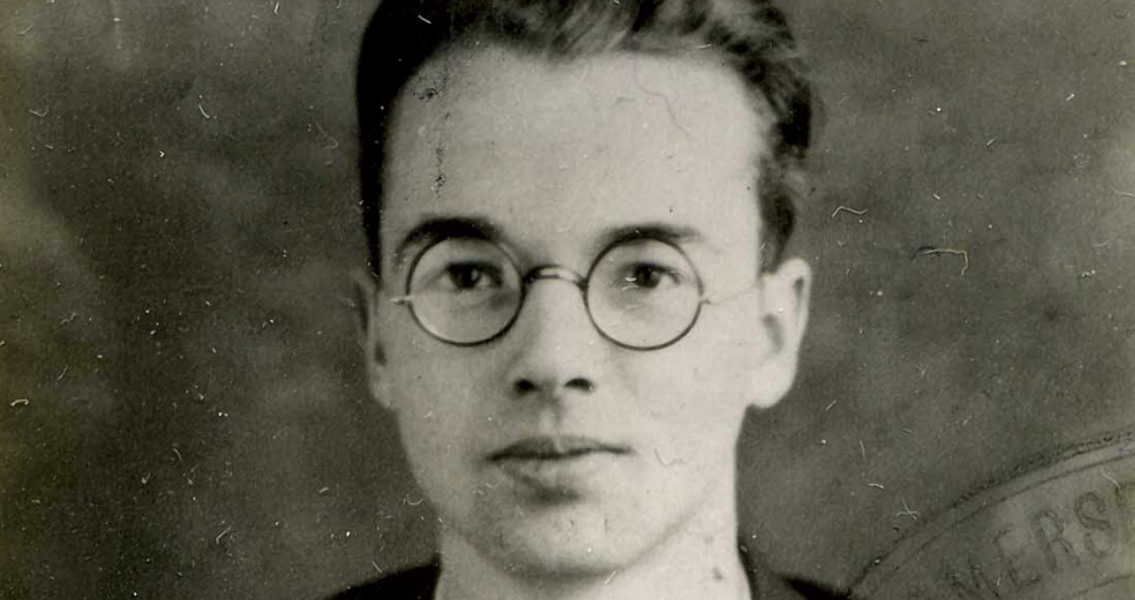<![CDATA[The Soviet Union issued a statement on 6th March, 1950, denying any involvement with Klaus Fuchs, a German physicist who had been sentenced to fourteen years in prison just a week earlier for leaking nuclear weapon secrets. "Fuchs is unknown to the Soviet government and no agents of the Soviet Union had any connection with Fuchs." read the disclaimer from the USSR's Soviet Tass News Agency, which was distributed to Western media. Considering events following Fuchs' release from prison, the Soviet denial might seem difficult to believe. Owing to good behaviour Fuchs was released early, in 1959, and he immediately moved to Soviet controlled East Germany. He was quickly granted citizenship and appointed Deputy Director of the Central Institute for Nuclear Research in Dresden - seemingly generous treatment for a man the Soviet government supposedly had no connection to. Spending the rest of his life in the Eastern Bloc, he received a host of honours from both the governing East German Communist Party and the scientific establishment of the Soviet Union. The fact that Fuchs' father lived in East Germany could explain his decision to return there and the ease with which he won citizenship. However, the continued ambiguity over just how extensive the USSR's spy network was, combined with the high ranking position Fuchs was granted in East Germany, surely points to some connection between him and the Soviet government. Under interrogation from the British authorities, Fuchs himself admitted to handing information to Soviet agents. The nuclear scientist's capture went on to have significant ramifications for the USSR's Cold War spy network. After his arrest and interrogation, authorities in the US and UK were able to unearth a host of other alleged spies who passed information on to Soviet intelligence. Klaus Fuchs (full name, Emil Klaus Julius Fuchs) was born in Russelheim, Germany, in 1911. A brilliant, occasionally eccentric mathematician and physicist, Fuchs studied at the Universities of Leipzig and Kiel. He joined the German Communist Party in 1930, and was forced to flee his homeland in 1933 following the Nazi clampdown on socialists and communists. Arriving in Britain, Fuchs completed his doctoral research at Bristol University and was then invited to Edinburgh University to continue his studies. Being a German citizen in an Allied country proved problematic for the scientist, who was imprisoned at the outbreak of the Second World War and only released in 1941, following an appeal from Edinburgh University. Fuchs became a British citizen, and was quickly pulled into wartime research into atomic weapons. He was employed on the British Atomic Bomb Research project, and in 1943 was sent to the USA to work on the highly secretive Manhattan Project. An unwavering loyalty to communism seems to have been the main reason for Fuchs' decision to become an agent for the USSR. Realising the importance of the work he was involved in, and the tactical advantage nuclear weapons would give, Fuchs began passing on scientific secrets. Files from Fuchs' interrogation by MI5, released by the National Archives last year, reveal the clandestine procedures the scientist followed to meet with Soviet operatives. To arrange meetings, Fuchs left magazines in Kew Gardens, with details of the time and place for the meeting left on the tenth page. When meeting his Soviet contacts, Fuchs had to carry a tennis ball to identify himself, while the contact would be carrying a pair of gloves. The information Fuchs passed on proved vital in aiding the USSR's atomic weapons project, with some estimates claiming it accelerated the development of the first Soviet atomic bomb by up to a year. In February 1950, he was arrested by British officials and charged with violating the Official Secrets Act. It was an event which unearthed a complex network of spying on both sides of the Atlantic. Fuchs implicated the American Harry Gold, whose capture ultimately resulted in the arrest of Julius and Ethel Rosenberg. While Gold, like Fuchs, was sentenced to a hefty jail sentence, the Rosenbergs were both executed for treason. ]]>
USSR Denies Involvement With Spy Klaus Fuchs
